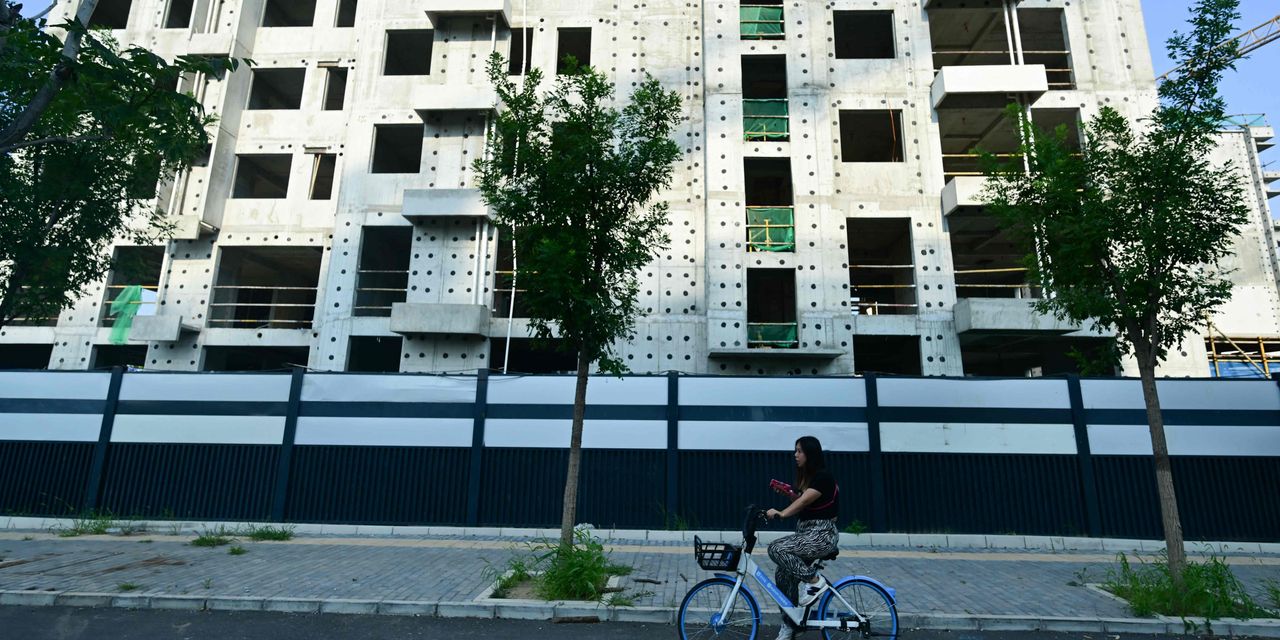Market Extra: China Evergrande collapse shows need for $1 trillion Beijing rescue plan, says Clocktower strategist

China Evergrande Group’s EGRNF, bankruptcy filing in New York on Thursday shows a need for Beijing to go big, and soon, to sop up the nation’s soured real estate market, says Clocktower Group’s Marko Papic.
China’s second-largest property developer asked a Manhattan court on Thursday for protection from creditors under Chapter 15 of the U.S. bankruptcy code, a way for foreign companies undergoing a restructuring to be shielded from creditors in the U.S.
It’s the latest development in a long and drawn-out saga over the debt-laden developer, which recently had about $340 billion in liabilities. Another Chinese developer, Country Garden Group, has been in the spotlight in recent days after it missed $22.5 million of dollar-denominated debt payments.
China Evergrande’s Tianji Holdings affiliate also sought Chapter 15 in New York on Thursday, according to court documents.
“The bigger issue is that China’s policy makers are holding out hope that confidence can return organically” to its teetering property market, Papic told MarketWatch on Thursday evening.
Since mid-2021, companies accounting for 40% of Chinese home sales have defaulted, including Evergrande in late 2021, stoking fears about the resilience of the world’s second-largest economy.
Papic said global financial markets already were aware of the developer’s debt woes, so Thursday’s filing shouldn’t come as a shock. Still, he thinks Chinese policy makers should act quickly to shore up confidence, while noting that it took Western governments nearly a decade to come up with an effective playbook to revive their wobbling economies in the wake of similar debt crises. Those plans have included rate cuts, quantitative easing or government bond-buying, but also lately a bazooka-load of fiscal stimulus.
“In China, you don’t have that luxury,” he said, adding that recent rate cuts from China’s central bank won’t likely go far enough to restore confidence or shore up woes of private developers.
Instead, he sees the need for China to borrow from Mario Draghi’s “whatever it takes” playbook in his years at the head of the European Central Bank through a tumultuous eight years starting in 2011.
Papic said China may need to absorb some $1 trillion in soured real-estate assets from the private sector, in a move similar to the Federal Reserve’s takeover of toxic mortgage and related derivatives off banks’ balance sheets in the wake of the 2007-2008 global financial crisis.
Several Wall Street banks have lowered their 2023 growth forecasts for China gross domestic product, including UBS last week cutting its expectations to 5.2% from 5.7%.
Read: China ETFs tumble after PBOC’s rate cut disappoints markets
U.S. stock futures YM00, +0.10% ES00, +0.03% were modestly higher overnight, after the S&P 500 index SPX, Dow Jones Industrial Average DJIA and Nasdaq Composite Index COMP fell for a third day in a row Thursday.

Comments are closed.